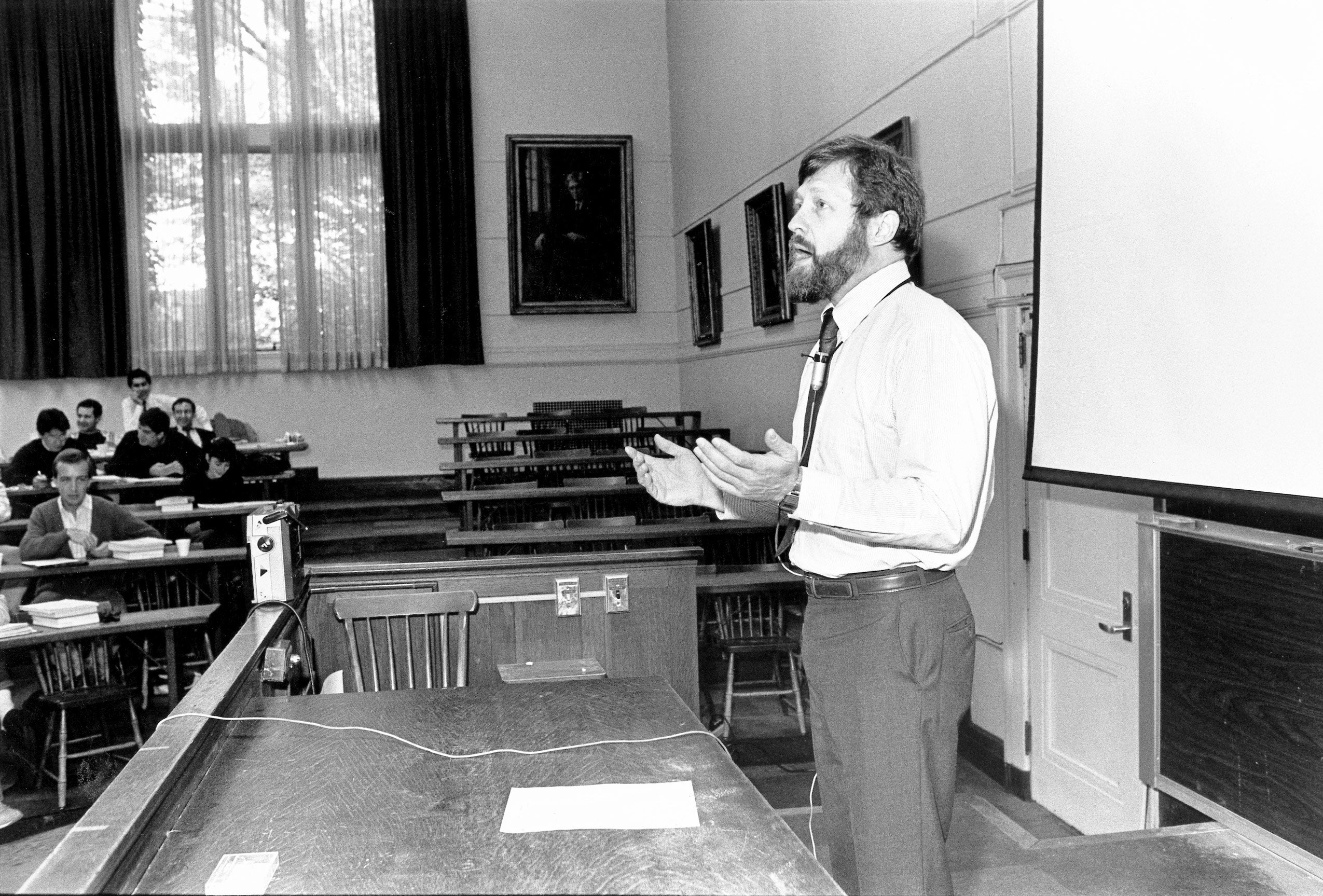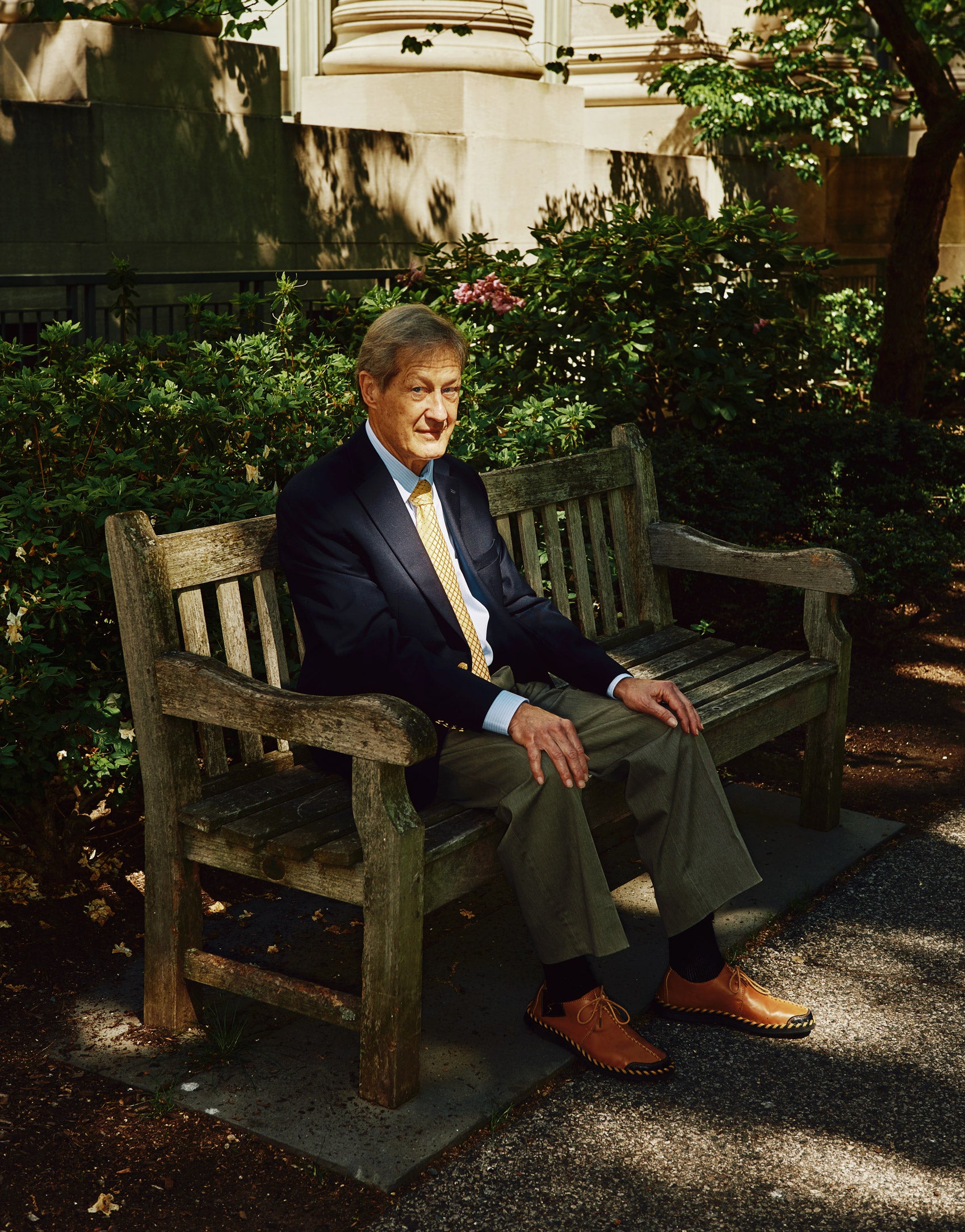Nearly two decades ago, if someone suggested a lifelong academic for appointment to a large and complex public-company board of directors, the result was too often hidden, or not-so-hidden, eye rolls. And double eye rolls were reserved for a candidate who also happened to be a lawyer.
So it may have come as a surprise when, back in 2003, Cravath, Swaine & Moore’s boardroom legend—the late and great Bob Joffe—suggested that Time Warner consider Harvard Law School Dean Robert Clark ’72 for appointment to its board of directors. This was a singularly important appointment for the company: Not only was Time Warner then one of the two largest news, media, and entertainment companies in the world—with nearly $50 billion in annual revenues and a complicated and diverse collection of media brands—but even more critically, this was to be the company’s first new director since its now-infamous merger with AOL.
The suggestion was not a surprise to me—then Time Warner’s general counsel. I had been a student of Dean Clark’s both my second and third years at HLS—first, in his corporate law class, and then later in what would be a once-in-a-lifetime 10-credit offering called the Integrated Corporate Term, in which Dean Clark and Professors Hal Scott and Al Warren immersed us in a term of corporate law, securities regulation, secured transactions, and corporate tax.
I think I can still remember—over 30 years later—a fair bit of his song that summarized the law of fraudulent conveyances.
I was already fully familiar with Dean Clark’s subject matter mastery and first-rate pedagogical skills. In the classroom, he could take complicated and sometimes dense subject matter and, through a combination of lecture and gentle but probing questioning, convey that material in a sophisticated yet understandable way to our class. And if all that were not enough, at the completion of most modules of materials, he would bring in his synthesizer and entertain and teach us with songs of his own creation that would exquisitely summarize the materials we had just covered through the age-old Socratic method. I think I can still remember—over 30 years later—a fair bit of his song that summarized the law of fraudulent conveyances. Professor Clark also exhibited a heightened and refreshing interest in the practical and empirical aspects of the subject matter we were studying. But more on that a bit later.

While I had seen how talented and dedicated Dean Clark was at Harvard, even I could not fully appreciate what a spectacular choice he would be for our board of directors. Over the next decade and a half, Dean Clark would come to be seen and recognized as one of the very best directors that Time Warner would ever have. Indeed, by the time we sold Time Warner to AT&T in 2018, he would lead not only our Nominating and Governance Committee, as its chair, but also our entire board, as its lead independent director. Over that nearly 15-year period, our company encountered an exhaustive number of challenges and opportunities spanning the gamut from operations, strategy, finance, legal, and regulatory—and throughout all of it, Dean Clark’s expert and steady judgment was a godsend to all of us. He was truly a leader in our boardroom, and one who understood and exhibited a perfectly balanced understanding of the proper and effective role of a director.
Now that our journey together at Time Warner is completed, I have had a chance to reflect on all that I have learned from Dean Clark—in both the classroom and the boardroom—and on what qualities have made him so successful and cherished.
It is one thing to find someone who combines stunning intellect, subject matter mastery and confidence … but it is exceedingly rare to find one who possesses all those qualities together with a thoroughly genuine humbleness of spirit.
Of course, one must begin by acknowledging again Dean Clark’s top-notch intellect and complete mastery of the subject matter he has spent his life studying and teaching. Those are qualities that thankfully are in abundance in our law school’s faculty.
On top of that remarkable base, Dean Clark also brings an enormous knack for excellent judgment—not merely in his chosen field but in all aspects of professional life in which I have witnessed him. I do not know whether that good judgment comes to him naturally or, as I suspect may be the case, through his own mastery of Socratic dialogue with himself and his own thinking. Anyone who has been lucky enough to sit next to Dean Clark at a meeting where he quietly mumbles to himself the most important questions and considerations on the table will know exactly what I mean.
With that judgment also comes a remarkable yet quiet confidence, and, I dare say, courage, in his decisions. Perhaps that confidence and courage come from his innate sense of trusting the process and the standards to which he holds himself in absorbing relevant information and making complex decisions.
If all this were not impressive enough to be found in a single person, there are two other qualities of this man that truly set him apart. The first is his overwhelming and genuine humbleness. It is one thing to find someone who combines stunning intellect, subject matter mastery, confidence and courage in his or her decision-making, but it is exceedingly rare to find one who possesses all those qualities together with a thoroughly genuine humbleness of spirit. But that is Dean Clark.
Finally, throughout my time with Dean Clark, I was always struck by his refreshing dedication to empirical examination. If he has a political ideology, I have never discovered it in the more than 35 years I have known him. And nor have I ever known him to be ideological about a theory or strategy in law or business. Except, perhaps, the ideology of being dedicated to studying and considering the real-world operation and effects of tentative theories or ideas. His genuine interest in how an idea plays out in practice, and in the data that one would seek in examining those effects, is perhaps one of the very rarest (these days) and most impressive qualities that I learned to value in this great man. And I can’t help but think it stems from some combination of his unmatched curiosity of mind and humbleness of spirit.
I have had some of the greatest mentors in my professional life that one could ever hope for. And Dean Robert Clark certainly shares the top of that cherished list for me, and, I imagine, countless more who were lucky enough to have him as a student at Harvard Law School.
Paul T. Cappuccio is vice chairman of the dtx company. From 2001 through 2018, he was executive vice president and general counsel of Time Warner.
